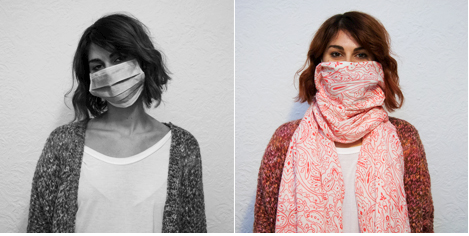We're very germ sensitive at our house. My husband is a mathematician who studies the spread of infectious disease. At home there are frequent lectures on the best way to sneeze and you are never far from cleaning agents that can help sterilize an area if there is risk of transmission. Of course, we see movies like Contagion on opening day and watch the Walking Dead.
Movie poster and description for Contagion via Wikipedia. "Contagion is a 2011 medical thriller directed by Steven Soderbergh. The film features an ensemble cast that includes Marion Cotillard, Bryan Cranston, Matt Damon, Laurence Fishburne, Jude Law, Gwyneth Paltrow, Kate Winslet, and Jennifer Ehle."
But in real life, our awareness of infectious disease transmission is a bit higher than most people.
When you live in (or visit) a city with public transportation, you devise somewhat practical coping mechanisms to deal with the hordes of people who are always in your periphery. These coping mechanisms are not scientific; they're placebos you use so if you decide to eat something before you wash your hands, you feel you've done what you can to prevent the transmission of cholera (or whatever disease you are currently obsessing about).
Gizomodo published an article about Straphanger clothes which help transit riders prevent spreading or catching communicable diseases while they are on public transit. For example, the clothing includes things like:
Removable, washable anti-microbial patches in the bend of your elbow so you're sneezing in a non-contaminated spot and reducing the likelihood of transmission.
Washable, fold-out gloves to allow protection from hand rails. The gloves are removable to make washing easy.
A scarf-like collar lined with antimicrobial fleece to protect you against other passengers who may be sick. They plan to have versatile collars for all seasons.
A hidden pocket to hold your transit card so your dirty hands don't have to search through all of your belongings.
Image of concept clothing that help reduce the transmission of disease. Image courtesy of gravitytank via Gizmodo.
The clothing are still conceptual, but could make a big impact on our culture if they are produced. I know I would enjoy them. Read more about the Transfer project featured in the article on gravitytank's website.
And if you think this is something you don't need to worry about, you should check out the measles infection warning from the BART in San Francisco.
Talking about disease transmission (and prevention) on social media is interesting; there are a lot of communities with strong beliefs that can sometimes be polarizing. For example, positive messages about vaccines on social media can sometimes generate negative results. As you share this on social media (which I hope you will do), you can be assured that advancements in science for things like clothing are just representations of good old fashioned consumerism at it's best. In the US we love consumers.
PS - Here's Scough
While the clothes in this story are still conceptual, we've been alerted of a company that is currently making a scarf! Check out Scough.
Here's a great description of the product from the funny folks at Scough.
“If you love people but not their germs or pollution, Scough is for you. Scough is made by hypochondriacs for style conscious germaphobes. We designed it from the same materials the Ministry of Defense uses for chemical warfare—it’s not “made by a 3rd grade teacher.” It’s for people who want to look great but are serious about avoiding the flu every time some jerk doesn’t cover his mouth on an airplane, subway or in your office.
Scough creates a mini-microclimate of freshened air that’s not just a barrier to a harsh germ and pollution-filled world, but is shown to adsorb and kill viruses and pollution before you breathe it. Besides helping keep you healthy, it’s a really cool, super-soft scarf. (Did you see our hot, classically attractive, Photoshop slim non-threatening models wearing them?)
The Scough uses an activated carbon filter impregnated with silver for maximum funk killing power. There is real science, done by serious lab coat wearing folks, who created this technology for modern warfare. We just were clever enough to make it look nice, be soft and adapt it to your daily grind.”
Here's a video about the scarf and an article about how it works. They're just getting started but they're doing a bang-up job on Twitter, too. Follow Scough on Twitter.




